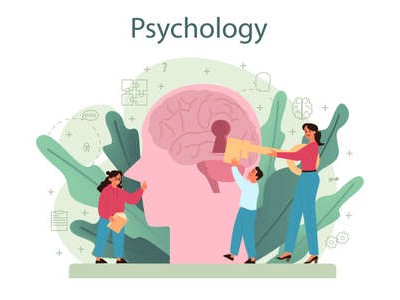
Anxiety Or Depression Psychologist Ashmore (07) 5539 9798
Isabella Whittingham Registered Psychologist Ashmore

Introduction: Major Depression Disorder Psychologist Ashmore Near Me
In today's fast-paced and requiring world, it is no surprise that many individuals fight with tension, anxiety, and anxiety. These mental health conditions can have an extensive effect on an individual's overall well-being and lifestyle. While tension, stress and anxiety, and depression are frequently considered as different entities, there is a strong link between them. This post will check out the connection in between stress, anxiety, and anxiety, clarifying the factors that add to their coexistence and the prospective techniques for managing these conditions effectively.
The Link In between Tension and Anxiety
Stress and anxiety frequently work together, as one can be a trigger for the other. When we experience tension, our bodies launch cortisol, typically known as the tension hormonal agent. This physiological response prepares us for the fight-or-flight response, allowing us to deal with prospective threats or challenges. However, chronic or excessive stress can result in extended activation of the stress action system, leading to anxiety.
Anxiety is defined by consistent sensations of worry, fear, or worry. It can manifest in numerous kinds such as generalized anxiety condition (GAD), panic disorder, social anxiety disorder (SAD), or particular phobias. Individuals with anxiety might experience physical symptoms like increased heart rate, sweating, shivering, and trouble concentrating. The presence of chronic tension can intensify these signs and contribute to the advancement or worsening of stress and anxiety disorders.
The Connection In between Anxiety and Depression
Anxiety and depression frequently exist side-by-side in individuals who experience mental health obstacles. In truth, research study suggests that about half of those diagnosed with depression also fulfill the criteria for an anxiety condition. The relationship in between these 2 conditions is complex and multifaceted.
One possible description for this connection is that both stress and anxiety and depression share common hidden systems in the brain. Neurotransmitters like serotonin and norepinephrine play an essential role in regulating state of mind, and imbalances in these chemicals can add to the development of both anxiety and anxiety. Furthermore, people with stress and anxiety might experience negative thought patterns and rumination, which can add to the onset or worsening of depressive symptoms.
Furthermore, the chronic nature of stress and anxiety can be emotionally draining and cause sensations of despondence and misery, characteristics frequently connected with depression. The consistent worry, fear, and anticipatory anxiety that individuals with stress and anxiety experience can take a toll on their mental health and increase their vulnerability to developing depression.
The Effect of Tension on Depression
Stress is a considerable contributing element to the advancement and exacerbation of depressive symptoms. When we are exposed to chronic tension, our bodies produce higher levels of cortisol, which can interrupt the delicate balance of neurotransmitters involved in state of mind guideline. This interruption can result in a decline in serotonin levels, commonly connected with depression.
Moreover, stress can likewise impact various elements of an individual's life that are necessary for preserving excellent psychological health. It can disrupt sleep patterns, interfere with appetite and consuming routines, strain social relationships, and hinder general self-care practices. These elements combined can contribute to the onset or worsening of depressive symptoms.
Strategies for Managing Tension, Stress And Anxiety, and Depression
While tension, stress and anxiety, and anxiety can be challenging to browse, there are numerous methods people can utilize to manage these conditions effectively. It is essential to bear in mind that what works for someone might not work for another. Therefore, it might take some time and experimentation to Trauma Recovery Therapists Ashmore Near Me find the most ideal coping mechanisms.
Seeking Expert Help: Consulting a trained mental health expert such as a depression psychologist in Surfers Paradise is often the primary step in managing tension, stress and anxiety, and anxiety. These experts have the knowledge and competence to provide customized treatment plans customized to an individual's particular needs.
Cognitive-Behavioral Therapy (CBT) : CBT is a widely-used therapeutic technique that focuses on identifying and changing unfavorable thought patterns and habits. It can help people establish healthier coping systems, obstacle illogical beliefs, and handle tension, anxiety, and depression more effectively.
Medication: In some cases, medication might be required to manage severe symptoms of stress and anxiety and depression. Antidepressants and anti-anxiety medications can assist regulate brain chemistry and ease signs. Nevertheless, it is vital to work carefully with a doctor to find the best medication and dosage.
Lifestyle Modifications: Participating in routine workout, practicing mindfulness or meditation methods, preserving a healthy diet plan, getting sufficient sleep, and prioritizing self-care activities can significantly affect mental health. These way of life modifications can decrease tension levels, improve mood, and boost overall well-being.
Social Support: Structure a strong support network of good friends, relative, or support system can supply people with the psychological support they require when browsing tension, stress and anxiety, and anxiety. Having somebody to confide in and lean on during challenging times can make a significant distinction in handling these conditions.
Stress Management Techniques: Including tension management methods such as deep breathing exercises, progressive muscle relaxation, journaling, or taking part in pastimes that bring delight can assist people reduce tension levels and promote relaxation.
FAQs
1. What are the primary signs of anxiety?
- Symptoms of stress and anxiety consist of extreme concern or worry, restlessness or feeling on edge, irritation, problem concentrating or sleeping, muscle tension, and physical signs like increased heart rate or shortness of breath.
2. How do I know if I have depression?
- Common signs of anxiety consist of relentless sensations of sadness or emptiness, loss of interest in activities as soon as delighted in, modifications in hunger or weight, trouble sleeping or oversleeping, sensations of worthlessness or regret, tiredness or loss of energy, problem focusing, and thoughts of death or suicide.
3. What is the difference in between anxiety and depression?
- While stress and anxiety is identified by excessive concern and fear, depression is marked by consistent feelings of sadness, hopelessness, and a loss of interest in activities. Stress and anxiety focuses more on future-oriented issues, while anxiety centers around feelings of despair and emptiness.
4. Can worry cause anxiety and depression?
- Yes, persistent or extreme tension can contribute to the development or worsening of stress and anxiety and anxiety. Tension disrupts the fragile balance of neurotransmitters involved in state of mind regulation, resulting in imbalances that can trigger these conditions.
5. How can I manage stress effectively?
- Effective tension management strategies include workout, mindfulness or meditation practices, preserving a healthy diet plan, getting adequate sleep, engaging in pastimes or activities that bring happiness, seeking assistance from loved ones, and practicing relaxation techniques like deep breathing workouts or progressive muscle relaxation.
6. When must I seek expert assistance for stress, stress and anxiety, or depression?
- It is a good idea to seek expert help if stress, anxiety, or depression considerably interfere with daily functioning, relationships, work performance, or total quality of life. A mental health specialist can provide a precise diagnosis and recommend suitable treatment options.
Is Anxiety A Mood Disorder Psychologist Ashmore
Anxiety Behaviors Psychologist Ashmore Near Me
Isabella Whittingham Registered Psychologist Gold Coast
Surfers Paradise Chiropractic Centre-Dr. Bruce Whittingham
12 Thomas Drive, Surfers Paradise QLD 4217
(07) 5539 9798
https://surfersparadisechiropractic.com.au
Depression From Stress Psychologist Ashmore Near Me